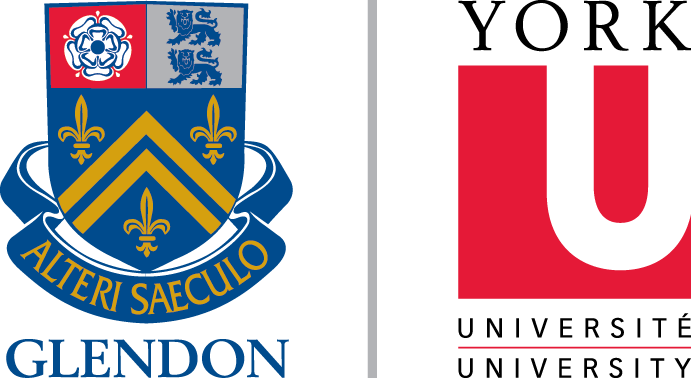A team of Glendon students made a huge impression at a model NATO conference earlier this month, virtually sweeping the awards at the end of the conference.
“My cadets and I were enormously impressed by your team’s enthusiasm and serious dedication to this important event”, Dr. Schuyler Foerster, faculty advisor for the team of cadets from the United States Air Force Academy said in a letter this week to FGS Dean Barbara Crow. “We were all the more impressed when we realized that your team had travelled to Washington at their own expense, which must be the ultimate expression of their dedication.”
Dr. Foerster added, “York University is well known, but I can assure you that Glendon College was placed squarely on the map this past week.”

From left to right: Megan Penn, Luke Cooper, Liliane Nkunzimana, Otto Faludi, Conner Marvin, Caze Jean-noël, Damien Accoulon, Tanya Belleau, Nelson Eddingfield
In recapping the team’s success for Dean Crow, Dr. Foerster pointed out six of the eight delegates — Luke Cooper, Liliane Nkunzimana, Caze Jean-Noel, Tanya Belleau, Nelson Eddingfield and Meagan Penn — all were acclaimed by their peers as Superior Delegation in Committee, and Conner Marvin was recognized as Outstanding Delegation in Committee. Megan Penn also received the Student Leadership Award, reflecting comparable recognition by the Faculty advisors at the event. “This virtual ‘sweep’ of awards led to their recognition with the Overall Distinguished Delegation Award,” Dr. Foerster’s letter said.
Dean Crow said the news about the team’s success was great news. “How can we create more such opportunities and properly fund those who pursue them?”
Otto Faludi, a first-year Master’s student in the Public and International Affairs Program, lead the Canadian delegation and acted as the team’s faculty advisor. He said the nine-member team was from the Foreign Affairs Council of Glendon (FACG). The team was comprised of five Master’s and four undergraduate students. As part of their preparation for the conference, delegates from the Glendon team met with Juris Audarins, Ambassador of the Republic of Latvia to Canada last month, where they were briefed on the policies and perspectives of Latvia on NATO and the European Union. That information was critical to the team’s success in Washington, Otto said.
As well, the team had the opportunity to consult with Juris Pogrebnaks, Deputy Chief of Mission at the Latvian Embassy in Washington prior to the conference, where they were briefed on a wide range of topics including the status of the NATO Strategic Communications Centre of Excellence in Riga, Latvia’s capital, NATO’s Theatre Missile Defence program, energy security and Latvia’s defence budget.
Both embassy visits were also augmented by the delegation’s visit to the U.S. State Department where the delegation had an opportunity to talk to a NATO policy officer in the Bureau of European and Eurasian Affairs.
Otto said conferences like the model NATO, along with recent events such as the model International Criminal Court in Poland and the model International Court of Justice in Turkey, “give the students practical experience in foreign affairs.” As a result of their performance in Washington the Glendon team was invited to participate at the upcoming model Arab League conference next month, also in Washington, to represent Tunisia. “We’re in a bit of a quandry, we’re scrambling to acquire funding.”
As a student club, the FACG had $1,500 in funding for the Washington conference, but each student still had to come up with $1,000 of their own money for the trip, Otto said, whereas the U.S. Air Force academy team, which went to Washington from Colorado, was fully funded for the team members and the faculty advisor.
“We strongly believe student participation in these events should be a cornerstone of experiential education,” he said. While at these conferences the students are making connections and networking with diplomats and industry insiders. The conferences are scouting and recruiting events for organizations, Otto said, students can end up working at NATO, the World Trade Organization and the Organization of American States. “(The conferences) gives students the ability to land a job in international affairs.”
To reach the Foreign Affairs Council of Glendon/Conseil affaires étrangères de Glendon, e-mail them at FACG-CAEG@outlook.com.
Article from the February 25, 2014 Glendonannonce


